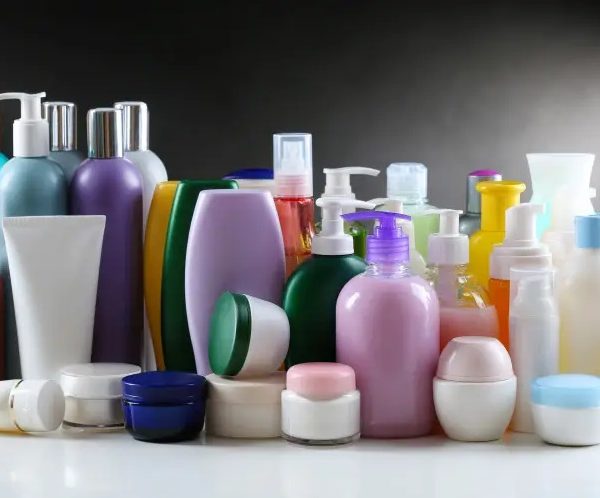The Irony of ‘Organic’ Beauty Products in African Markets

In the global shift toward natural beauty over the last few years, Africa stands out as both a vibrant contributor and a complex enigma at the same time. The continent’s rich history of using indigenous ingredients like shea butter, marula oil, and baobab extract places it at the heart of the clean beauty revolution. Yet, beneath this promise lies a stark dichotomy: while social media platforms drive a growing demand for organic and natural beauty products, the production and marketing practices within the sector often paint a contrasting reality. This duality reflects broader challenges in regulation, consumer awareness, and industry transparency, which must be addressed if Africa is to fully realize its potential as a leader in the global natural beauty movement.
The Influence of Social Media on Natural Beauty
Social media platforms such as Instagram, TikTok, and YouTube are instrumental in shaping consumer perceptions of beauty. Influencers and beauty content creators regularly promote the virtues of “clean beauty” by sharing tutorials, ingredient breakdowns, and product reviews that highlight the benefits of using natural, chemical-free solutions. This digital ecosystem has enabled African beauty brands to showcase their products globally, celebrating Indigenous ingredients like shea butter, baobab oil, and African black soap as cornerstones of the natural beauty movement.
However, while these platforms elevate the demand for natural products, they also inadvertently contribute to the proliferation of misleading claims. The hashtag-driven marketing campaigns often blur the lines between authentic natural beauty products and those merely labelled as “organic.”
The Rise of the “Organic” Label in African Markets
According to market research firm Research and Markets, the global organic beauty industry was valued at $16 billion in 2022 and is projected to grow at a compound annual growth rate (CAGR) of 9.2% through 2030. Africa represents a significant growth market within this sector, but this rapid expansion comes with a troubling downside.
Just as the trend continues to grow, the term “organic” has become a powerful marketing tool, but its misuse is increasingly evident in African beauty markets. In Nigeria, for example, a surge of artisanal beauty brands market their skin-lightening creams and other cosmetic products under the guise of being “organic” or “natural.” However, investigations reveal that many of these products are far from meeting international standards of organic certification.
Products labelled as “organic” frequently contain harmful chemicals like mercury, barium sulfate, and dimethyl formamide. A 2020 investigation by the World Health Organization (WHO) found that over 60% of skin-lightening creams sold in West Africa contained mercury levels above the permissible limit of 1 part per million (ppm). These harmful products are often manufactured locally using industrial-grade chemicals, including barium sulfate and dimethylformamide, sourced from unregulated suppliers in markets like Ojota in Lagos.
Health Risks and Consumer Exploitation
This disconnect between branding and actual product composition poses significant health risks. Studies have shown that prolonged mercury exposure, a common ingredient in skin-lightening creams, can lead to kidney damage, neurological issues, and even cancer. Despite these risks, the appeal of these products remains high, fueled by societal pressures for lighter skin tones and the broader trend towards “natural” beauty solutions.
For consumers, the challenge lies in distinguishing between genuinely organic products and those that exploit the term for commercial gain. Without stricter regulatory frameworks and increased awareness, the exploitation of consumer trust will continue, perpetuating health hazards and undermining the integrity of the natural beauty movement.
Strategic Approaches for a Sustainable Beauty Market
To combat these challenges and harness the potential of the organic beauty market, stakeholders must adopt a multi-pronged approach:
- Regulatory Frameworks: Governments and industry bodies must enforce stringent labelling standards. For instance, introducing third-party certification programs can help consumers identify authentic organic products. Beyond policies, stringent enforcement measures might also be required to curb the expansion of the unwholesome practices that sell harmful chemicals to people, under the guise of ‘organic’ beauty.
- Consumer Education: Brands and advocacy groups can collaborate to launch campaigns that demystify the organic label, focusing on ingredient transparency and safety.
- Authentic Sourcing: African beauty brands have a unique opportunity to differentiate themselves by leveraging indigenous ingredients ethically. For example, partnerships with local communities for the sustainable harvest of shea butter or baobab oil can create shared value.
- Tech-Enabled Transparency: Blockchain technology could be employed to create traceable supply chains, ensuring that consumers can verify the origin and authenticity of their beauty products.
Africa is uniquely positioned to lead the global shift towards natural beauty. With its rich heritage of organic ingredients and traditional beauty practices, the continent has the potential to redefine clean beauty standards. Brands that prioritize authenticity, ethical sourcing, and sustainable production can not only tap into global markets but also set new benchmarks for integrity in the beauty industry.
Our latest report, The Global Shift Towards Natural Beauty: Exploring the African Perspective, delves into this dynamic sector, offering insights into the challenges, opportunities, and future of natural beauty in Africa. From addressing the misuse of organic labels to leveraging the continent’s natural resources, the report outlines actionable strategies for brands looking to thrive in this evolving space.
Click here to download the full report: The Global Shift Towards Natural Beauty
Ready to invent the future?
Our teams possess extensive in-market experience that drives measurable growth for brands. Please reach out to us to learn more.
